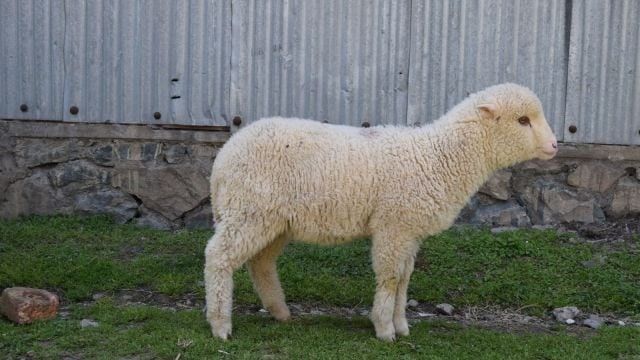India’s First Gene-Edited Sheep

- 30 May 2025
In News:
Sher-e-Kashmir University of Agricultural Sciences and Technology (SKUAST-Kashmir) has successfully developed India’s first gene-edited sheep, marking a significant breakthrough in the field of animal biotechnology.
Key Highlights:
- Institution Involved: Sher-e-Kashmir University of Agricultural Sciences and Technology (SKUAST), Srinagar.
- Technology Used:
- CRISPR-Cas9 gene editing — a precision genome editing tool that won the 2020 Nobel Prize in Chemistry.
- Gene editing was conducted without insertion of foreign DNA, thus the sheep is non-transgenic and differs from traditional GMOs.
- Gene Targeted: The myostatin gene, which regulates muscle growth, was edited to enhance muscle mass.
- Result: Muscle mass increased by 30%, a trait absent in Indian sheep breeds but seen in select European breeds like the Texel.
- Significance:
- Improved meat yield and quality in sheep.
- Potential for disease-resistant and higher-reproduction-rate livestock in the future.
- Supports India’s evolving biotech policy by promoting non-transgenic, gene-edited organisms that are more likely to receive regulatory acceptance.
- Aligns with goals of sustainability and food security by enhancing productivity per animal.
- Regulatory & Safety Aspects:
- Research adhered to international biosafety protocols.
- Sponsored by the Indian Council of Agricultural Research (ICAR).
- Legacy & Research Background:
- Developed after 4 years of dedicated research.
- Led by Prof. Riaz Ahmad Shah, also known for creating India’s first cloned Pashmina goat, Noori, in 2012, and contributing to the world’s first cloned buffalo at NDRI, Karnal.
Implications for the Future:
- Opens doors for precision breeding in livestock to boost India’s animal husbandry sector.
- Strengthens India’s position in advanced genomic research and supports the vision of Atmanirbhar Bharat in biotechnology.
- Awaits comprehensive regulatory framework for gene-edited animals, currently under government consideration.
